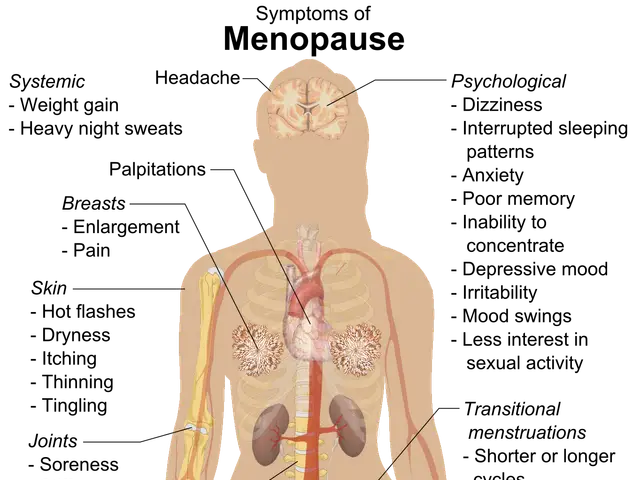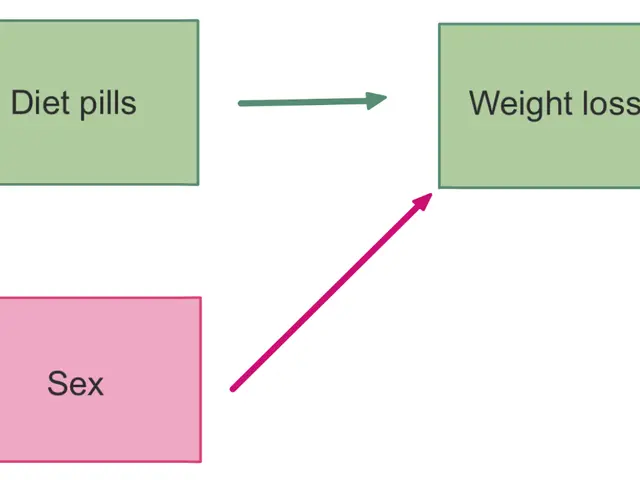Ashwagandha and Anxiety: Investigating Possible Side Effects
Ashwagandha, an ancient herb known as Withania somnifera, has been a staple in Ayurvedic medicine for centuries, renowned for its anxiety-reducing and stress-relieving properties [1]. This herbal supplement has gained significant popularity in recent years as a natural remedy for various health concerns, including stress, cognitive function, and energy levels.
A recent study published in the Journal of Clinical Medicine Research found that participants who took ashwagandha extract experienced a significant reduction in anxiety scores compared to those who received a placebo [2]. However, while ashwagandha is predominantly beneficial for reducing anxiety, it can cause anxiety symptoms in some users due to individual differences, drug interactions, inappropriate use, or side effects linked to sedation and mood changes.
One reason for this paradoxical effect is individual variation in response. Not all individuals metabolize or respond to herbal supplements the same way. While most experience calming effects, some may react paradoxically with increased nervousness or mood changes [3].
Another factor is the interaction with other medications. Ashwagandha can interact with antidepressants and other drugs, potentially leading to side effects that affect mental health, including anxiety or agitation [4].
The sedative effects and timing of ashwagandha use can also play a role. Ashwagandha can cause drowsiness and somnolence due to its sedative properties, which if taken at inappropriate times or in high doses, might disrupt normal mood regulation and daily functioning, indirectly increasing anxiety [1][3][5].
Overuse or high doses of ashwagandha may disturb sleep patterns and mood balance, potentially causing symptoms like memory loss or abnormal drowsiness that can contribute to feelings of anxiety or unease [3]. Some users have also reported experiencing increased depressive symptoms after taking ashwagandha.
It's important to note that while ashwagandha is generally considered safe for most people, some individuals may experience adverse reactions. If you experience any symptoms after starting ashwagandha, such as increased feelings of restlessness, difficulty sleeping, heightened irritability, persistent feelings of sadness, or physical symptoms like rapid heartbeat or digestive issues, it's crucial to consult with a healthcare professional.
In conclusion, while ashwagandha offers promising benefits for stress and anxiety management, it's essential to approach its use with caution. Consultation with a healthcare provider is advised before starting ashwagandha, especially for those on other medications or with existing mental health conditions [1][4]. As with any supplement or medication, individual responses can vary, and it's always best to prioritise personal health and well-being.
- Ashwagandha, known for reducing anxiety and stress, can paradoxically increase anxiety in some individuals due to individual differences, drug interactions, inappropriate use, or side effects linked to sedation and mood changes.
- The study published in the Journal of Clinical Medicine Research found that participants who took ashwagandha extract experienced a significant reduction in anxiety scores compared to a placebo group.
- Individual variation in response to herbal supplements, including ashwagandha, can result in some users experiencing increased nervousness or mood changes.
- Ashwagandha can interact with antidepressants and other drugs, potentially leading to side effects that affect mental health, including anxiety or agitation.
- The sedative effects and timing of ashwagandha use can disrupt normal mood regulation and daily functioning, indirectly increasing anxiety.
- Overuse or high doses of ashwagandha may disturb sleep patterns and mood balance, potentially causing symptoms like memory loss, abnormal drowsiness, and increased depressive symptoms.







